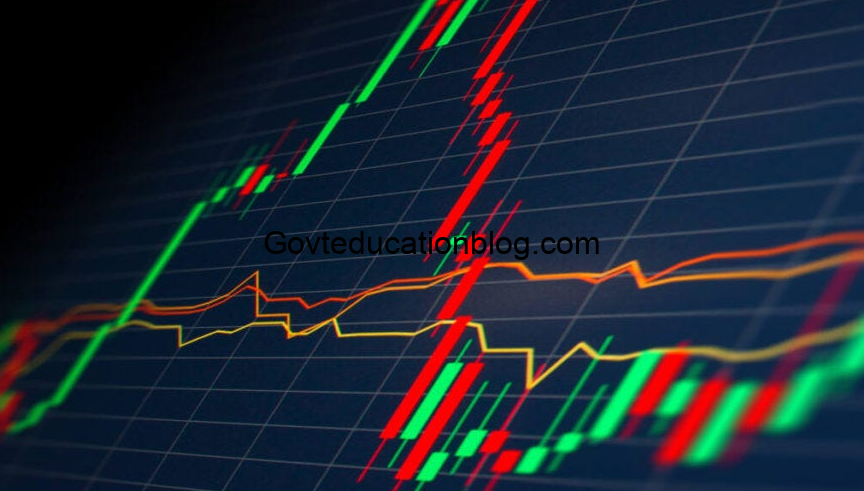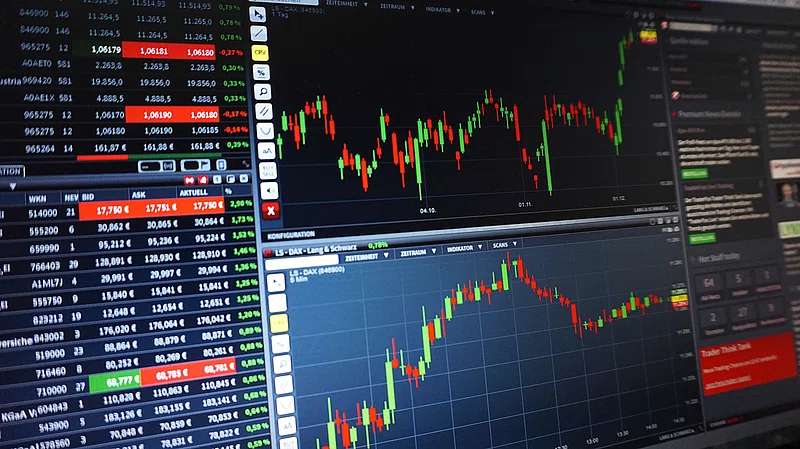Embark on a journey to understand the significance of economic indicators, crucial metrics that shape investment decisions and trading strategies in financial markets. Gain insights into interpreting economic data to optimize your investment approach.
Introduction to Economic Indicators:
Economic indicators play a pivotal role in providing insights into the health and direction of an economy, influencing investment decisions and trading strategies in financial markets. This article offers a comprehensive overview of key economic metrics essential for investors and traders, empowering them with the knowledge to navigate the complexities of the global economy.
Gross Domestic Product (GDP):
Gross Domestic Product (GDP) stands as one of the most widely tracked economic indicators, representing the total value of goods and services produced within a country’s borders. GDP growth rates provide valuable insights into the overall health and trajectory of an economy, with robust growth signaling expansionary conditions and potential investment opportunities, while sluggish growth or contraction may indicate economic downturns.
Unemployment Rate:
The unemployment rate measures the percentage of the labor force that is actively seeking employment but unable to secure jobs. A low unemployment rate suggests a healthy labor market and robust economic activity, potentially leading to increased consumer spending and investment sentiment. Conversely, rising unemployment rates may signal economic weakness and impact consumer confidence and spending patterns.
Inflation Rate:
Inflation, the rate at which the general price level of goods and services rises over time, is a critical economic indicator with significant implications for investors and traders. Moderate inflation is generally viewed positively, as it reflects healthy demand and economic growth. However, high inflation can erode purchasing power and negatively impact investment returns, while deflation may signal economic stagnation and pose challenges for businesses and consumers alike.
Interest Rates:
Central banks utilize interest rates as a monetary policy tool to manage inflation and stimulate economic activity. Changes in interest rates can influence borrowing costs, consumer spending, and investment decisions, thereby impacting financial markets. Investors and traders closely monitor central bank announcements and interest rate decisions for insights into future market trends and potential investment opportunities.
Consumer Confidence Index:
The Consumer Confidence Index (CCI) measures consumer sentiment regarding current economic conditions and future prospects. High levels of consumer confidence typically correlate with increased consumer spending and economic expansion, while declining confidence may signal caution and reduced spending, potentially affecting corporate earnings and market performance.
Leading Economic Indicators:
Leading economic indicators are metrics that precede changes in economic activity, providing insights into future trends and potential turning points in the business cycle. Examples include stock market performance, building permits, and manufacturing activity. Investors and traders utilize leading indicators to anticipate shifts in economic conditions and adjust their investment strategies accordingly.
Conclusion:
Understanding economic indicators is essential for investors and traders seeking to navigate financial markets successfully. By interpreting key metrics such as GDP, unemployment rate, inflation rate, interest rates, consumer confidence index, and leading economic indicators, market participants can gain valuable insights into the health and direction of the economy, identify investment opportunities, and mitigate risks effectively. Armed with this knowledge, investors and traders can make informed decisions to optimize their investment outcomes and achieve their financial goals in an ever-evolving economic landscape.

Read More on other topic: Read 1, Read 2
Additional Tips for Economic Indicators ,Investors and Traders:
- Stay Informed: Keep abreast of current events, economic news, and market developments to stay ahead of trends and anticipate potential market shifts. Utilize reputable financial news sources, market analysis reports, and economic calendars to stay informed and make well-informed investment decisions. Economic Indicators
- Diversify Your Portfolio: Spread your investments across different asset classes, industries, and geographic regions to mitigate risk and optimize returns. Diversification helps reduce the impact of market volatility and ensures that your portfolio is not overly exposed to any single risk factor. Economic Indicators
- Practice Risk Management: Implement risk management strategies to protect your capital and minimize losses. Set stop-loss orders, establish risk tolerance levels, and adhere to disciplined trading practices to manage risk effectively. Remember that preserving capital is essential for long-term investment success. Economic Indicators
- Stay Disciplined: Develop a consistent investment strategy and stick to your plan, even in the face of market fluctuations and emotional impulses. Avoid making impulsive decisions based on short-term market movements and focus on your long-term investment objectives.
- Monitor and Review: Regularly monitor your portfolio performance and review your investment strategy to ensure alignment with your financial goals and risk tolerance. Make adjustments as needed based on changes in market conditions, economic outlook, and personal circumstances.
- Consider Professional Advice: If you’re uncertain about investment decisions or lack the time or expertise to manage your portfolio effectively, consider seeking advice from a qualified financial advisor. A professional advisor can provide personalized guidance tailored to your financial situation and goals.
- Utilize Technology: Take advantage of technology and investment tools to streamline your investment process, conduct research, and execute trades efficiently. From online brokerage platforms to investment apps and robo-advisors, technology offers a wealth of resources to enhance your investment experience.
- Invest for the Long Term: Adopt a long-term investment mindset and focus on accumulating wealth gradually over time. Avoid succumbing to the allure of get-rich-quick schemes or chasing short-term market trends. Instead, invest patiently with a focus on sustainable growth and wealth preservation.
- Stay Flexible: Remain adaptable and open to adjusting your investment approach based on changing market conditions, economic dynamics, and evolving investment opportunities. Flexibility allows you to capitalize on new trends and adapt to shifting market landscapes effectively.
- Continuous Learning: Commit to ongoing education and self-improvement in the field of investing and trading. Stay curious, explore new strategies, and learn from both successes and failures. Continuous learning is key to staying competitive and achieving long-term success in the dynamic world of financial markets.



